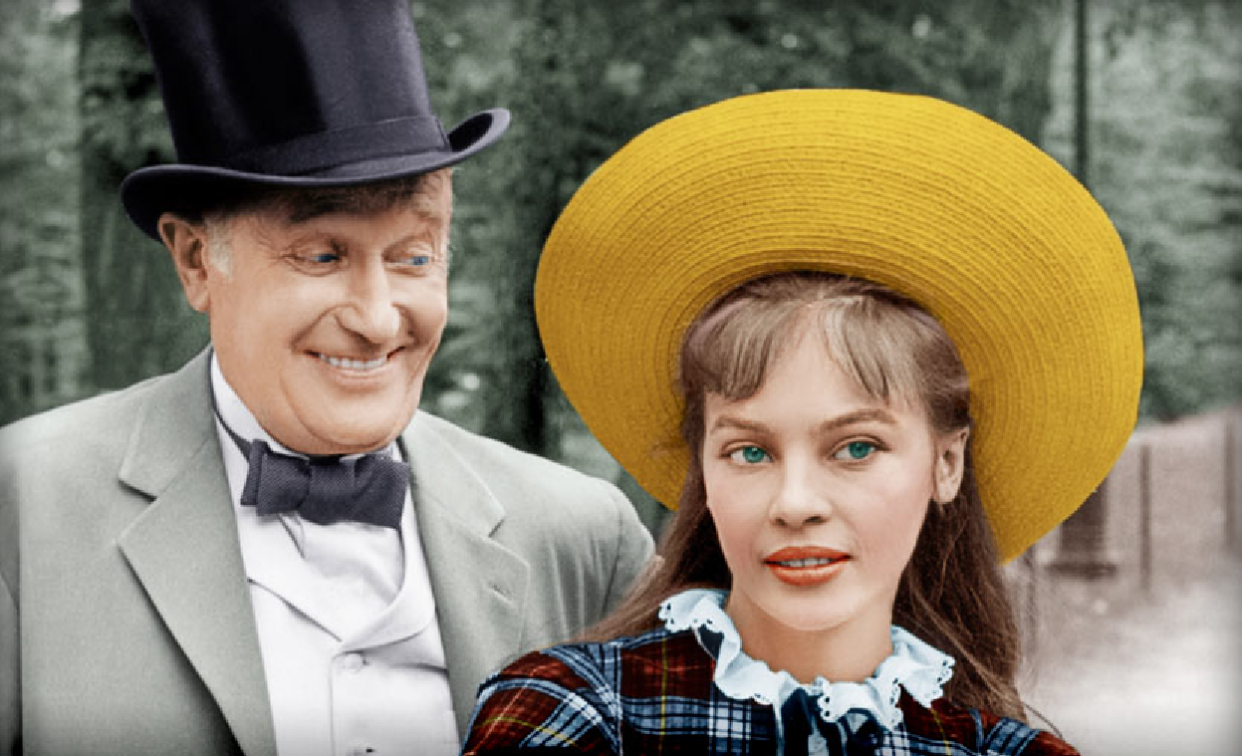Out of Tune: 8 Startlingly Offensive Songs From Classic Hollywood Musicals

Maurice Chevalier casts a lecherous eye on Leslie Caron in 1958’s Gigi
As someone who grew up watching old Hollywood musicals, I love them more than almost anything. There’s nothing like those movies anymore, particularly the ones from the peak years of MGM, whose stars who could make every song and dance look like a spontaneous expression of joy (rather than something they’d been practicing until their feet bled for weeks).
The dark side of Hollywood’s golden age is now common knowledge, but the movies themselves retain a glow of innocence — which is why it’s all the more jarring when a moment of eye-popping racism, sexism, or violence pops up in a catchy song. For this list, I excluded musicals made in the 1960s, when the genre started to become more self-aware and grounded in the modern world. So, from Seven Brides for Seven Brothers to Holiday Inn, here are a few of the most cringe-worthy moments from some of the greatest movie musicals of the ’40s and ’50s.
“Thank Heaven for Little Girls” from Gigi (1958)
Gigi is an irresistibly charming movie — as long as you can block out the fact that it’s about a girl being groomed for prostitution. That’s particularly challenging during Maurice Chevalier’s “Thank Heaven for Little Girls” number, in which he dotes like an adoring grandfather on a very young Liza Minnelli (whose father, Vincente, directed the picture). Except Chevalier’s not exactly an adoring grandfather because, per the lyrics of the song and the theme of the movie, he’s imagining what an awesome courtesan that little girl will make when she gets older. So maybe put that part out of your mind again.
“Triplets” from The Band Wagon (1953)
The humor in Band Wagon — a backstage musical about a Broadway adaptation of Faust — leans to the dark side, and the comic “Triplets” number is suitably deranged. Even so, the suggestion that the babies might want to purchase tiny guns to murder each other makes for a dubious punchline.
“Abraham” from Holiday Inn (1942)
Holiday Inn is about a New England lodge that opens exclusively for the holidays, with a floor show themed to each one. And what better way to celebrate Abraham Lincoln’s birthday than to put Bing Crosby and Ginger Rogers in blackface?
“Yes Indeedy” from Take Me Out to the Ball Game (1949)
Gene Kelly and Frank Sinatra play randy ballplayers who are part-time vaudevillians in this musical, which MGM released the same year as the superior On the Town. In this introductory song, they joke about all the hearts they’ve broken, and it gets pretty hairy: Sinatra’s ex flunked out of college and killed herself, while Kelly left his greatest love behind when he found out she was just eleven years old. Comedy!
“Prehistoric Man” from On the Town (1949)
According to On the Town’s Ann Miller, women hate modern men and long for a caveman to drag them away by their hair. This musical number contains some great tap-dancing and some highly questionable impersonations of our “prehistoric” progenitors. Let’s just say these sailors didn’t learn a lot from their trip to the museum.
“Sobbin’ Women” from Seven Brides for Seven Brothers (1954)
In this jaunty number, seven lonely mountain-dwelling brothers get inspired by Plutarch’s “Rape of the Sabine Women” and decide to kidnap themselves some wives. For real. That is what this musical is about. And God help me, this song is so, so catchy.
“Heat Wave” from There’s No Business Like Show Business (1954)
Is Marilyn Monroe supposed to be Mexican in this number from There’s No Business Like Show Business? She doesn’t affect an accent, but she seems to have forgotten how to conjugate verbs. (She’s also surrounded by faux-Mexican dancers, including the Greek George Chakiris, who would once again wear brown face paint to play a Puerto Rican gang leader in West Side Story.)
“Ugga-a-Wugg” from Peter Pan (1956)
NBC’s recent Peter Pan Live wisely rewrote this number in which the Indians speak a nonsense language. They also cast an actual Native American actress as Tiger Lily, played by the very blonde Sondra Lee in the three original TV broadcasts, And yet even this version is less offensive than “What Makes the Red Man Red?,” the equivalent peace-pipe song in Disney’s animated Peter Pan, released in 1953.
Photo: Everett Collection
Solve the daily Crossword

